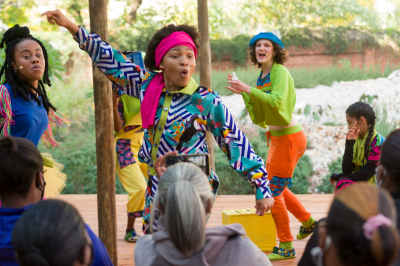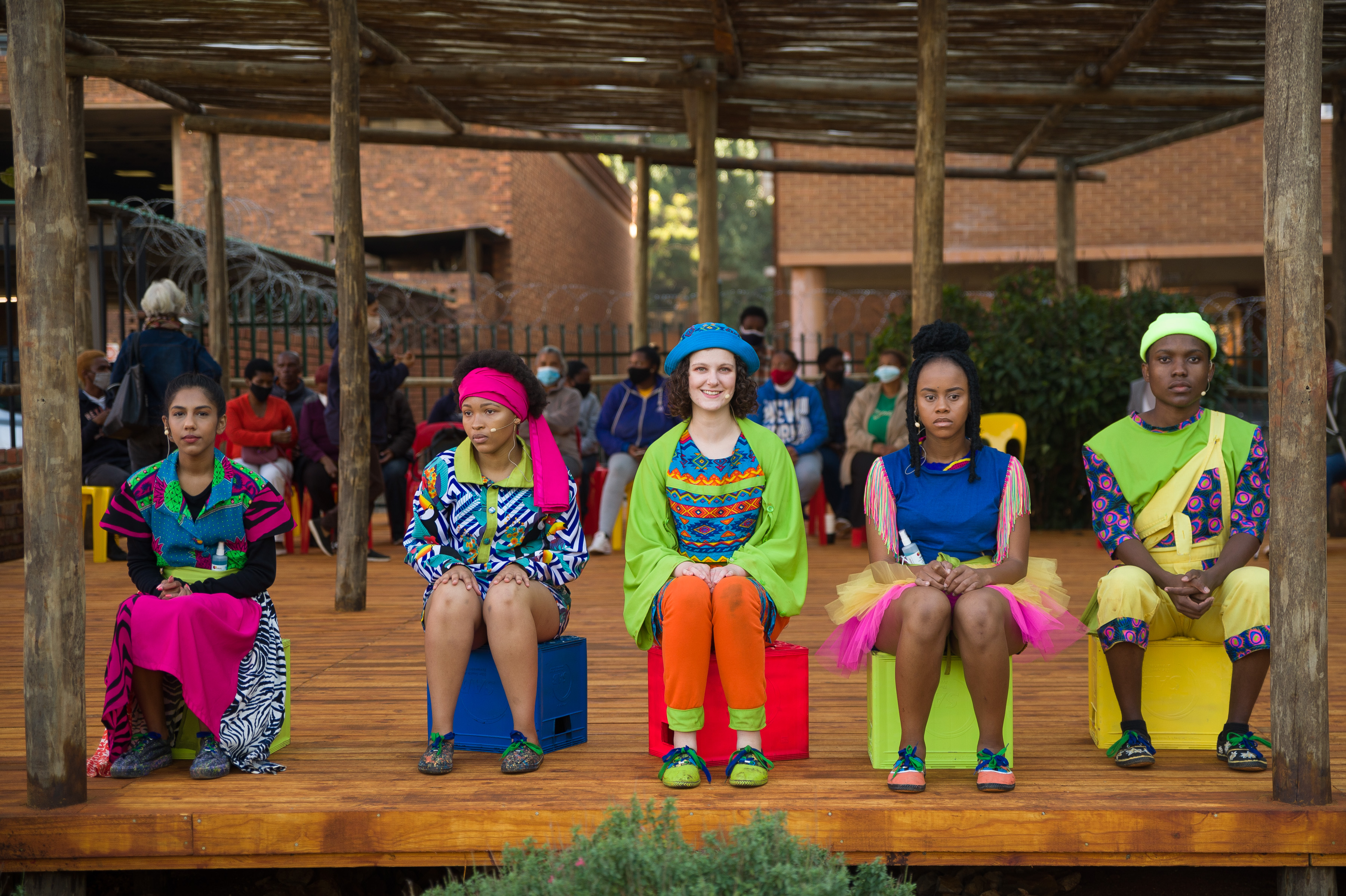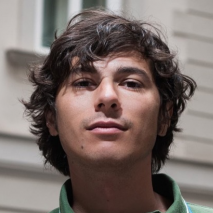


The University of Pretoria’s (UP) drama students are taking science communication to the people by participating in an interactive play on the use of hand sanitisers during the COVID-19 pandemic.
This event is a follow-up to the recently released IAP Statement, 'A call to action: Furthering the fight against falsified and substandard medical products' and is the result of a partnership between the Faculty of Natural and Agricultural Science, Department of Plant and Soil Sciences, University of Pretoria; the School of Arts: Drama department; the university’s UNICEF One Health for Change programme, and the Department of Science and Innovation/National Research Foundation (DSI-NRF) Centre of Excellence (CoE) in Food Security with financial support from the InterAcademy Partnership (IAP).
The applied theatre programme, Auntie Covidia and the Curious Calamities, is aimed at adult women and focuses on the use of appropriate hand sanitisers during the COVID-19 pandemic. This comes after two of the lead investigators, Professor Lise Korsten (co-director of the DSI-NRF Centre of Excellence in Food Security) and Dr Willeke de Bruin (senior postdoctoral fellow in the Department of Plant and Soil Sciences), recently wrote an article for The Conversation about how South Africans are not being protected against fake sanitisers. They wrote, “In South Africa, the Bureau of Standards recently issued a press release, raising concerns about substandard sanitisers produced by ‘unscrupulous’ manufacturers who were falsely claiming that their products had been certified. Reference was made to low-quality versions that can trigger skin allergies and can damage the skin, often presenting as a form of eczema.”
“This project focuses mainly on the impact of hand sanitisers on the environment, food, and healthcare systems. Essentially, the article inspired the idea for the play. The play is really about conveying the story about hand sanitisers,” said Prof Korsten.
UP community engagement site Moja Gabedi, a vegetable garden with fishponds, water canals and sculptures in Festival Street, Hatfield, that used to be a dumpsite, is where the performance took place between 17 and 19 May 2021.
The performers are a group of second- and third-year students from the Drama Department. “The content of the play is centred around debunking myths surrounding the COVID-19 vaccines as well as communicating the importance of reading the labels of hand sanitisers (ingredients, alcohol percentage, instructions for use, expiry date and the full address of the manufacturer),” said Teana Chiba, one of the performers. Performers Monqoba Sithole, Abulele Petersen and Bongiwe Jiyane said that the play also teaches about the dangers of using hand sanitiser incorrectly.
The 40-minute play is directed by Prof Coetzee and choreographed by Kristina Johnstone and cast. It will not only be performed live at Moja Gabedi but will also be filmed and posted online. “The filmed online version will include parts of the online show as well as different pre-recorded shots. The online version will take the form of an interactive education video. It will be made available online on all our social media platforms,” said Kirsten Dickinson, drama student and cast member. Prof Coetzee, Rian Terblanche, Lianne Schulz and applied drama honours student Marista van Eeden are responsible for creating the online video.
Wardrobe manager Nomzamo Maseko designed costumes inspired by streetwear and Afropunk and which “dance against the cast members’ bodies”. Alongside these lively costumes, crates are used as props. “The use of the crates allows the performance itself to shine without distracting too much from what we are actually doing. At the same time they can be really interesting modes of meaning-making themselves,” said performer Dickinson.
After the production, a workshop will be held with the women who attended to gain audience engagement. “In the workshop audiences will have the chance to discuss the play and the messaging to ensure that they have the necessary information to assist them in thinking about sanitisers in future. We will use drama-based strategies such as role play and elements of forum theatre to facilitate this interactive engagement with the play,” said Prof Coetzee. The cast and honours student Alicia Badenhorst will assist Prof Coetzee with the play workshops.

